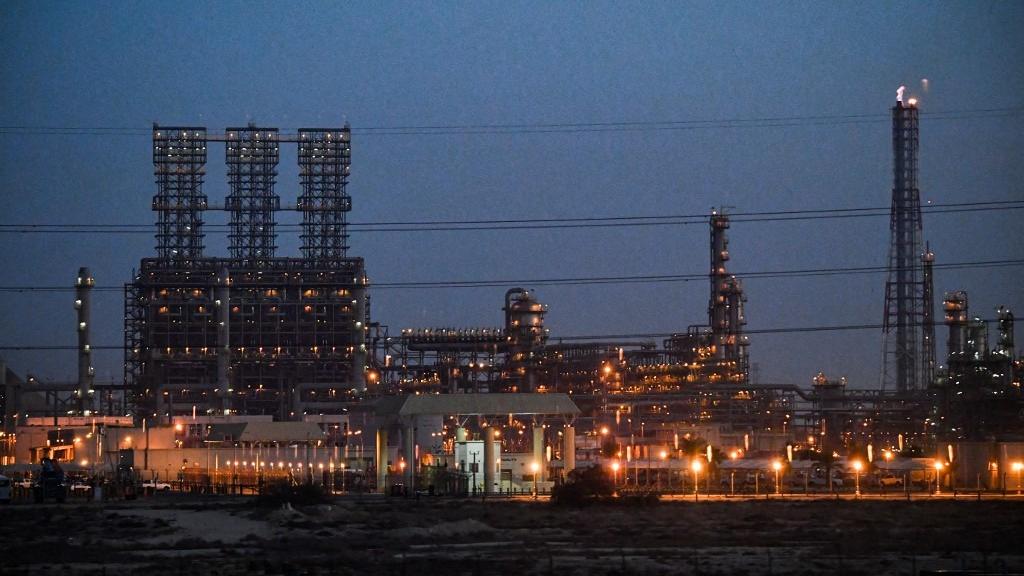 This file photo taken on Dec 11, 2019 shows a view of a refinery at the Jubail Industrial City, about 95 km north of Dammam in Saudi Arabia's eastern province overlooking the Gulf. (PHOTO / AFP)
This file photo taken on Dec 11, 2019 shows a view of a refinery at the Jubail Industrial City, about 95 km north of Dammam in Saudi Arabia's eastern province overlooking the Gulf. (PHOTO / AFP)
VIENNA - The Organization of the Petroleum Exporting Countries (OPEC) and the International Energy Agency (IEA) diverged further on Thursday in their predictions of global oil demand growth in 2024 as they hold contrasting views on next year's economic outlook.
In its monthly oil market report published on Thursday, the oil producer group OPEC stuck to its previous forecast of a "healthy" 2.2 million barrels per day (bpd) demand growth in 2024, explaining that "solid global economic growth, amid continued improvements in China, is expected to further boost oil consumption."
The IEA has previously criticized production cuts by OPEC and its allies, a group known as OPEC+, accusing the oil exporters of exacerbating the energy crisis and driving up inflation. OPEC, however, has insisted that the cuts were made to stabilize the oil market
In contrast, the IEA on the same day trimmed its prediction of 2024 global demand growth to 900,000 bpd, down from 990,000 bpd in its September report, citing "efficiency gains and a deteriorating economic climate" in its latest monthly report.
READ MORE: OPEC raises oil demand view in long-term outlook
The two groups on Thursday presented much closer predictions for global oil demand growth in 2023, with OPEC maintaining its projection of 2.4 million bpd increase in demand and the IEA raising its demand growth forecast from 2.2 million bpd to 2.3 million bpd.
The IEA attributed the upward adjustment to continued demand growth in China, India and Brazil.
The OPEC comprises 13 major oil exporting countries, while the members of the IEA mainly include oil-consuming nations, such as the United States, Japan and certain European countries. The two groups have clashed in recent years over a spate of issues, such as the output cuts by OPEC and its allies and the long-term oil demand outlook.
ALSO READ: OPEC chief: Energy demand to rise 23% through 2045
The IEA has previously criticized production cuts by OPEC and its allies, a group known as OPEC+, accusing the oil exporters of exacerbating the energy crisis and driving up inflation. OPEC, however, has insisted that the cuts were made to stabilize the oil market.
Last month, IEA Executive Director Fatih Birol said that demand for fossil fuels will peak by the end of this decade. OPEC later slammed Birol's prediction in a strongly worded statement, saying the forecast was not "fact-based," and could threaten energy security by discouraging investments in oil and gas projects.


